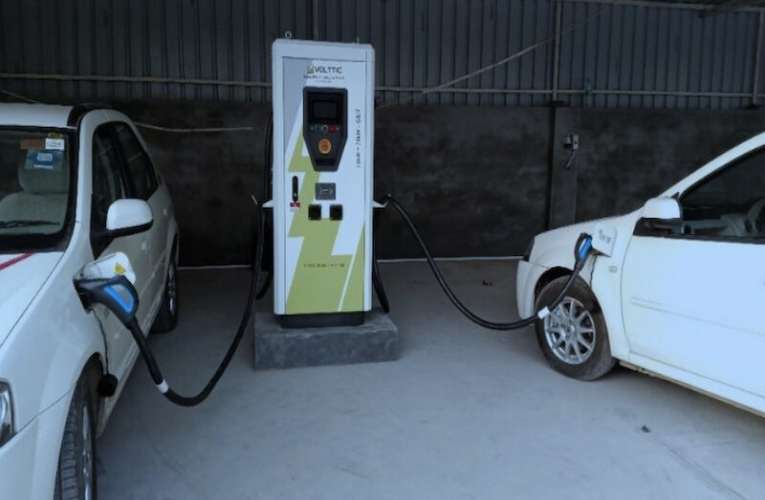
Around 25 percent of the capital subsidy will be provided on the cost of machinery and equipment for 200 battery-swapping stations, which is upto Rs 2 lakhs
Tamil Nadu’s new electric vehicle policy 2023 was unleashed a day back by the state government, which will offer capital subsidy for both private and public charging stations and also battery swapping stations. Apart from that, the policy also showcases special incentives for re-manufacture and retrofitting. Also, a roadmap will be prepared by the government to electrify all the institutional and public fleets in various phases running in the state.
A government spokesperson told the Hindu, “The State shall endeavor to increase the share of electric buses to 30% of the fleet [operated by State Transport Undertakings] by 2030.” The new policy asserted that the ecosystem of the electric vehicle industry is altering very swiftly and hence, it needs revisions after a certain time and also seamless policy approach. The policy is looking forward to counter various sectoral hurdles via interferences across the ecosystem, supply, and demand.
Now, when the policy was first unleashed in 2019, it offered an exemption of road tax, permit fees, and registration until December 31, 2022, but the new policy increased the same by three years and also offered special demand-side incentives until December 31, 2026. The point to be noted is that the schemes and incentives will be provided if the vehicles are registered, sold, and manufactured in Tamil Nadu itself. As per an exclusive report of The Hindu, the new policy provides for 25 percent of the capital subsidy on the cost of equipment and machinery for 200 public fast charging stations (up to ₹10 lakh), 500 public slow charging stations (up to ₹1 lakh) and private fast charging stations (up to ₹10 lakh).
Around 25 percent of the capital subsidy will be provided on the cost of machinery and equipment for 200 battery-swapping stations, which is upto Rs 2 lakhs. The policy clearly stated that the low charging stations do not have any DC fast chargers, while the fast charging stations are furnished with a maximum capacity of 50kW coupled with one or more DC fast chargers. Every public charging station, be it slow or fast must be equipped with at least three chargers, while the private charging stations will be utilized by vehicles belonging to commercial fleet operators.
The policy further added, "Projects will be provided an employment incentive in the form of the reimbursement of the employer’s contribution to the EPF for all new jobs created during the policy period. This incentive shall be paid for a period of one year and shall not exceed ₹48,000 per employee for residents of Tamil Nadu," reports The Hindu.

